Landmarks glow purple to mark Holocaust Memorial Day
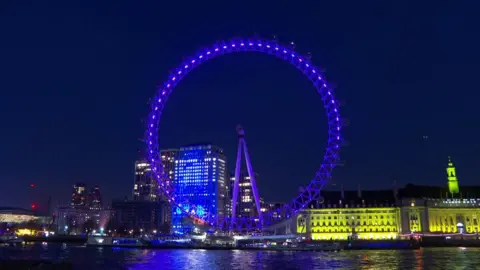 Pool
PoolLandmarks across the UK have glowed purple to mark Holocaust Memorial Day.
Holocaust Memorial Day is an occasion to remember the millions of mostly Jewish people murdered by the Nazis and their collaborators, as well as the victims of other genocides.
The date marks the anniversary of the liberation of the concentration camp at Auschwitz on 27 January 1945.
Each year, the commemorations are assigned a theme. In 2024, the theme is Fragility of Freedom.
Organisers say the theme encourages participants to not take freedoms for granted and consider what can be done to strengthen freedoms around the world.
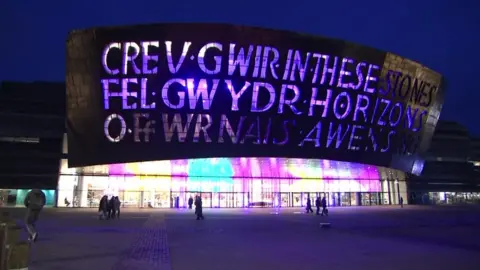 Pool
PoolPrime Minister Rishi Sunak was among the UK leaders to pay tribute to those who lost their lives.
"We have a duty to remember the horrific crimes of the Holocaust," he wrote on Twitter, formerly X.
Scottish First Minister Humza Yousaf lit a candle in memory of those killed - saying the day had been a reminder that everyone must "unite against hatred wherever we see it".
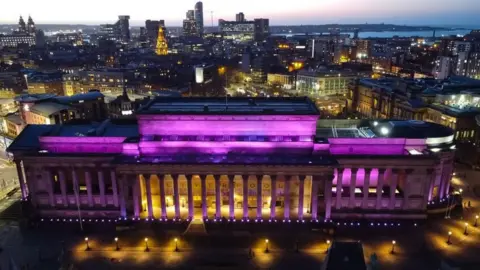 EPA
EPAThe Royal Family also posted their commemoration to social media, uploading a photo of King Charles and Queen Camilla lighting candles recently at Sandringham House.
It was taken before the King went into hospital on Friday to undergo treatment for an enlarged prostate.
Reflecting on the theme of the day, King Charles said it was "a stark reminder to us all how freedom can so easily be lost when it is taken for granted, and how crucial it is, therefore, to learn from those who bear witness to the horrors of the Holocaust and all genocides".
People across the UK have been encouraged to light candles in their own homes as a symbol of the fight against prejudice and hatred.
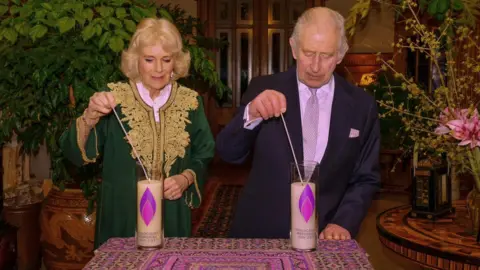 Royal Family
Royal FamilyApproximately six million Jewish people from countries across Europe were killed during the Holocaust.
The Nazis also killed millions of other people during World War Two, including Roma and Sinti, LGBT people, and people with disabilities.
As well as remembering the lives lost, Holocaust Memorial Day also commemorates the victims of genocides in Cambodia, Rwanda, Bosnia and Darfur.
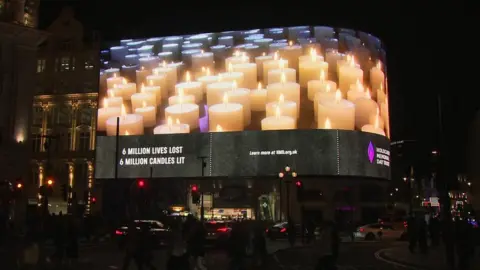 Pool
Pool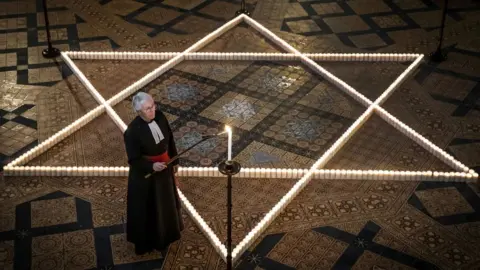 PA Media
PA Media